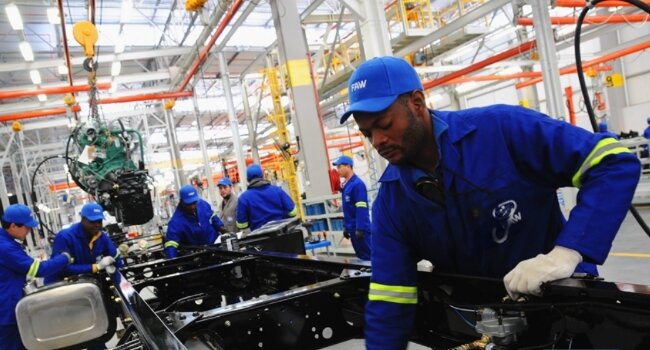Six prominent manufacturing companies listed on the Nigerian Exchange Limited, including Nestle Nigeria, Cadbury Nigeria, Dangote Sugar Refinery, Nigerian Breweries, International Breweries, and Champion Breweries, have collectively reported a combined loss of N166.3 billion in their financial results for the nine-month period concluding in September 2023.
These losses are attributed to several factors, including the adverse effects of rising interest rates and the devaluation of the Nigerian naira, which have had a negative impact on the manufacturing sector.
The devaluation of the naira has resulted in increased operating costs for multinational companies, particularly those with substantial costs, including finance expenses, denominated in foreign currencies.
Furthermore, the Central Bank of Nigeria (CBN) raised its benchmark interest rate for the eighth consecutive time in July, reaching 18.75 percent. This increase has further squeezed the profit margins of Fast-Moving Consumer Goods (FMCG) companies already grappling with double-digit inflation and diminished purchasing power among consumers.
An economist at BancTrust & Co, Omobola Adu, explained that these financial challenges are a direct result of naira devaluation, which is affecting the performance of companies with foreign currency-denominated loans on their balance sheets.
Additionally, high-cost pressures have reduced consumer spending on discretionary items, exacerbating the challenges faced by FMCG firms. The impact of foreign exchange devaluation has exacerbated these issues.
Nigerian Breweries, for instance, attributed its net loss during the period to a combination of foreign exchange losses due to naira devaluation and higher interest costs.
Gabriel Idahosa, Deputy President of the Lagos Chamber of Commerce and Industry (LCCI), noted that many manufacturers are borrowing money at higher interest rates due to rising inflation. They require more working capital to cope with the increased production costs while aiming to maintain their production capacity.
Former Minister of Industry, Trade, and Investment, Olusegun Aganga, highlighted the issue of high financing costs in Nigeria, with interest rates typically ranging from 15 to 20 percent. The shortage of long-term credit facilities for competitive businesses is another concern. Moreover, the country faces challenges with access to dollars for importing intermediate inputs and machinery, leading to higher costs due to exchange rate fluctuations.
Aganga stressed the need for a review of the legal framework to facilitate alternative financing sources such as private equity and venture capital funds for infrastructure development.
Francis Meshioye, President of the Manufacturers’ Association of Nigeria (MAN), urged the government to establish a specialized financial institution, a manufacturing bank, to cater to the financial interests and needs of the sector. While the Bank of Industry (BOI) exists, he argued that it is insufficient to serve the interests of the large manufacturing industry effectively.
Meshioye emphasized the importance of creating a dedicated manufacturing bank that could provide financial services without the need for commercial bank guarantees, given the reluctance of commercial banks to issue such guarantees. He stressed that a manufacturing bank would play a crucial role in supporting the growth of Nigeria’s manufacturing sector.










